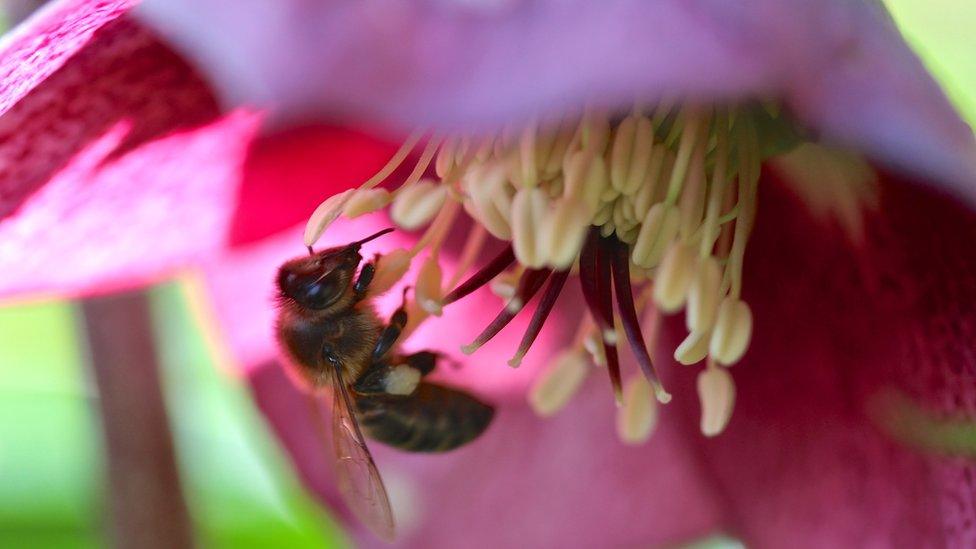Lockdown: Label showing plants safe for bees and butterflies
- Published
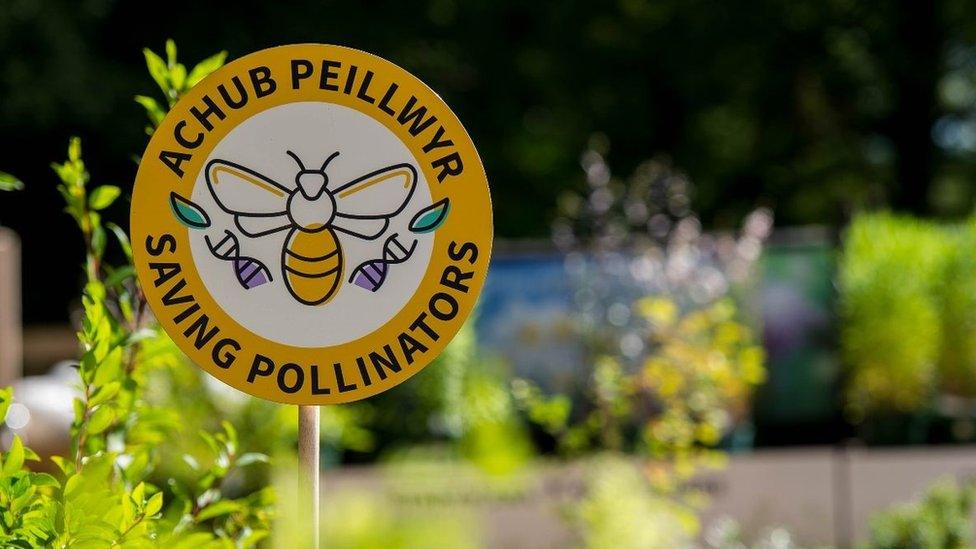
The growers and nurseries will use this 'Saving Pollinators' logo on their plants so the gardeners know they have no synthetic insecticides
A label scheme has been launched to protect bees and butterflies from plants containing insecticides.
The National Botanic Garden of Wales said a "massive growth in gardening" during lockdown had seen people unwittingly buying plants with residues poisonous to pollinators.
Its new labels will guarantee eligible plants have no synthetic insecticides and are grown in peat-free compost.
Twenty-three growers and nurseries have already signed up.
The Saving Pollinators logo scheme, set up with the Growing the Future Project, will also harness the botanic garden's DNA barcoding research, which has investigated which plants honeybees, solitary bees, bumblebees and hoverflies visit.
Dr Natasha de Vere, of the garden, said: "Lockdown has seen a massive growth in gardening with many more people spending extra time and money buying plants to make their gardens more wildlife-friendly, without realising the plants could contain residues of synthetic insecticides that are extremely damaging to pollinators and to our environment."
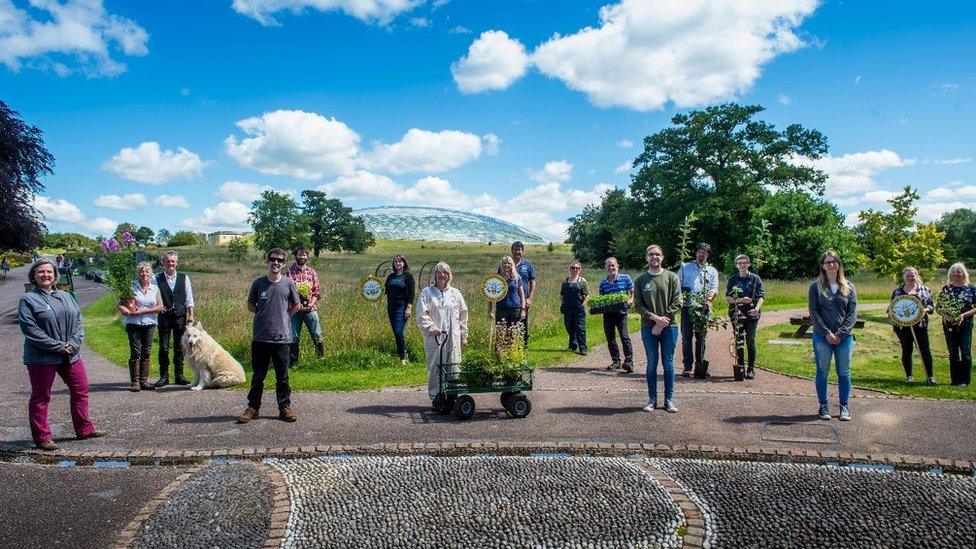
More than 20 growers and nurseries have signed up to the scheme
Those behind the project said it would be the first time gardeners could buy plants guaranteed to be good for bees and other pollinators.
It also aims to benefit other wildlife such as hedgehogs, sparrows and frogs.
Dr de Vere said pollinator decline would have an impact on the availability of many foods such as fruits, nuts, coffee and chocolates.
Bees will be buzzing if you plant these in your garden
Reports in the United States have suggested a lack of pollinators has reduced crop production.
"The good thing about looking after pollinators is that it's essentially looking after ourselves," she added.
The National Botanic Garden of Wales, located in Llanarthney, Carmarthenshire, said it hoped the label concept could be rolled out to other parts of the UK in the future, calling on the horticulture and garden retail industry to "take note".
- Published26 June 2012
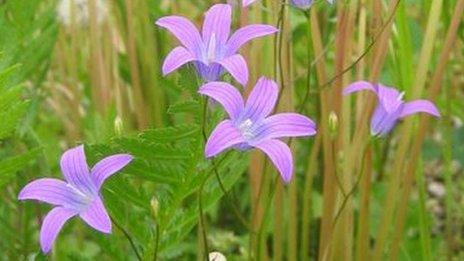
- Published25 April 2020
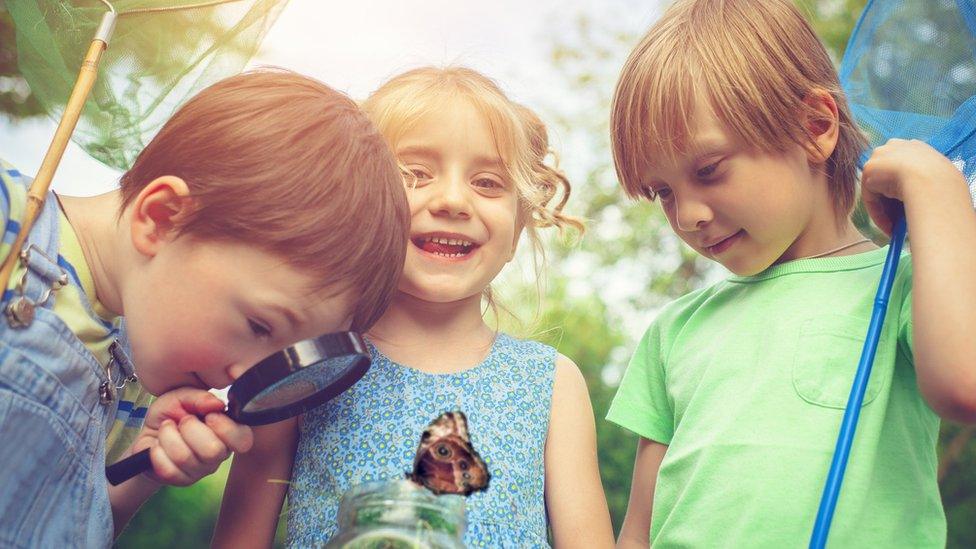
- Published16 August 2019
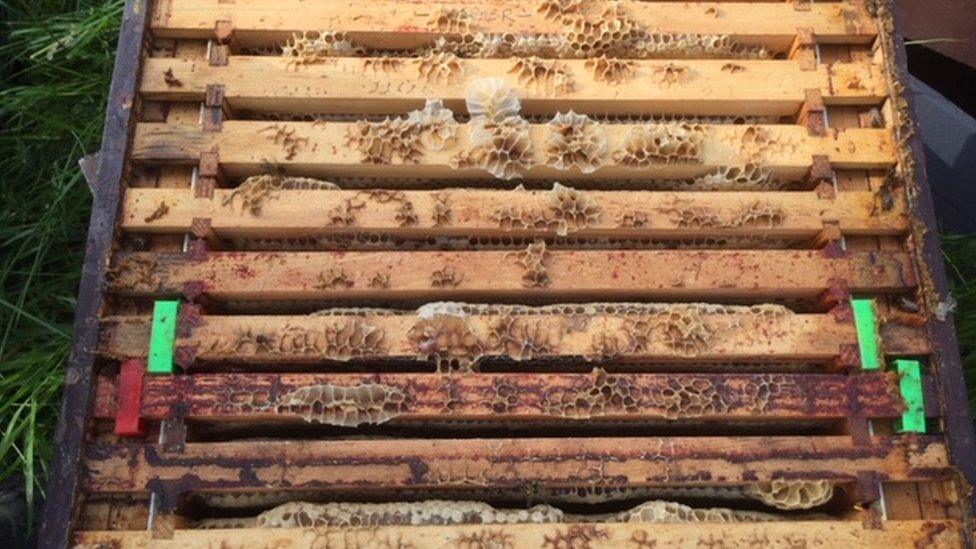
- Published17 February 2017
